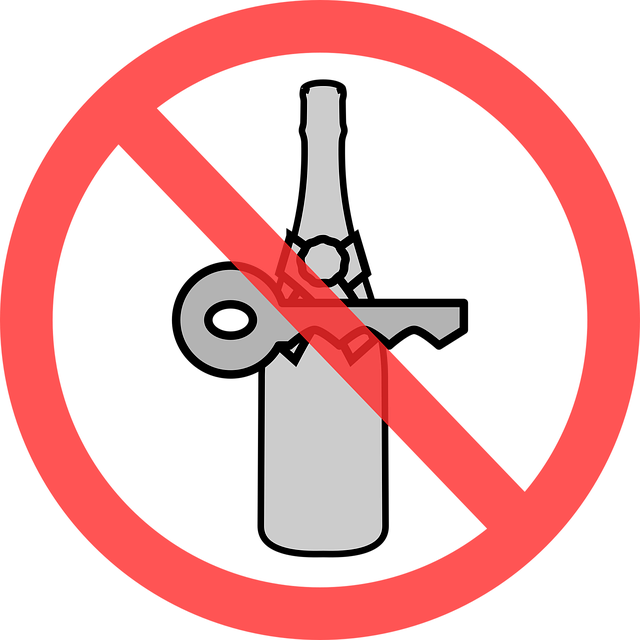Rural and urban areas face distinct DUI challenges due to varying legislation. Rural regions have less stringent rules but limited resources, while urban centers have stricter laws. This gap impacts recovery group strategies, with rural groups focusing on awareness and urban groups offering specialized assistance. Understanding these differences is crucial for effective support and rehabilitation. "Recovery Together" bridges the gap in rural areas, fostering community engagement and tailored support networks to address unique challenges stemming from Rural vs Urban DUI Legislation.
In the pursuit of understanding and addressing drunk driving, a stark contrast exists between rural and urban areas. This article delves into the Rural vs Urban DUI Legislation and its profound implications on communities. We explore how access to treatment differs across landscapes, scrutinize challenges in enforcing legislation remotely, and highlight the transformative power of support groups as a bridge to recovery. By examining unique risks and implementing collaborative solutions, we empower local communities to combat this pervasive issue.
- Understanding Rural vs Urban DUI Laws
- Impact on Communities: Access to Treatment
- Challenges in Enforcing Legislation Remotely
- Support Groups: A Bridge to Recovery
- Unique Needs of Rural Drivers: Risks and Solutions
- Empowering Local Communities through Collaboration
Understanding Rural vs Urban DUI Laws

In many regions, DUI (Driving Under the Influence) laws vary significantly between rural and urban areas. Understanding these distinctions is crucial for those navigating recovery and rehabilitation after a DUI arrest. Rural communities often have less stringent regulations compared to their urban counterparts, which can lead to unique challenges and opportunities for individuals seeking support.
The enforcement and legislation surrounding DUI in rural settings typically focus more on prevention and education due to lower traffic volumes and different societal dynamics. In contrast, urban areas tend to have stricter laws with heavier penalties, reflecting higher rates of traffic congestion and a need for deterrents. These differences matter for recovery groups as they can shape support strategies, focusing on either raising awareness in less regulated rural regions or providing specialized assistance tailored to the stricter urban legal framework.
Impact on Communities: Access to Treatment

In many communities, especially those in rural areas, access to treatment for substance abuse and mental health issues has been a long-standing challenge. The Rural vs Urban DUI Legislation gap often exacerbates this problem, leaving individuals struggling with addiction without adequate support. This lack of accessible treatment options can have devastating consequences, leading to higher rates of unaddressed addiction and related criminal activities like DUI (Driving Under the Influence).
Support groups like “Recovery Together” play a pivotal role in bridging this gap. By providing a safe and supportive environment, these groups offer crucial resources where traditional treatment centers might be scarce. They foster community engagement, enabling members to connect with peers facing similar challenges, ultimately strengthening local support networks and positively impacting DUI prevention efforts.
Challenges in Enforcing Legislation Remotely

Enforcing legislation remotely presents unique challenges, especially when considering the disparities between rural and urban DUI (drunk driving) laws. In rural areas, where populations are often more spread out and law enforcement resources limited, implementing stringent DUI laws can be difficult. The vast distances and thin staffing levels make it challenging for authorities to conduct proactive patrols and swiftly respond to potential DUI incidents. This results in a lower police presence on the road, which may deter strict enforcement of DUI regulations.
In contrast, urban areas benefit from higher population densities, enabling more extensive law enforcement networks. These regions can allocate additional resources to target DUI offenses through increased patrols, sobriety checkpoints, and community engagement programs. However, even in urban settings, remote enforcement techniques are essential during late hours or adverse weather conditions, when the risk of drunk driving is still significant. Effective rural-urban comparisons and tailored strategies are necessary to ensure consistent and fair DUI legislation across all regions.
Support Groups: A Bridge to Recovery

Support groups play a pivotal role in the recovery journey, especially in regions where access to specialized services is limited, highlighting the distinction between rural and urban DUI legislation. In remote areas, where legal resources might be scarce, support networks become even more vital. These groups offer a sense of community and understanding, facilitating connections among individuals facing similar challenges.
For those dealing with the aftermath of a DUI (Driving Under the Influence) conviction, these groups provide a safe space to share experiences, gain insights, and receive moral support. Unlike urban settings with abundant legal resources and treatment centers, rural areas often face unique barriers in terms of DUI-specific legislation and rehabilitation options. Support groups bridge this gap by fostering an environment conducive to healing and personal growth.
Unique Needs of Rural Drivers: Risks and Solutions

In rural areas, drivers facing recovery from substance abuse face distinct challenges due to geographical and social factors. One of the primary concerns is the lack of access to specialized support services compared to urban regions. Rural communities often have limited resources, resulting in fewer treatment centers and support groups per capita. This disparity can delay or hinder individuals’ access to critical care, especially when dealing with complex issues like DUI (Driving Under the Influence) and subsequent recovery.
Addressing these unique needs requires tailored interventions. Local governments and community organizations play a pivotal role in bridging this gap by establishing mobile support units or expanding urban-based programs to rural settings. Additionally, online platforms and virtual support groups can offer solutions for those with limited transportation options or who prefer anonymity. Tailoring recovery resources to accommodate the Rural vs Urban DUI Legislation differences ensures that every driver, regardless of their location, has access to effective support during their journey towards sobriety.
Empowering Local Communities through Collaboration

In many communities, support groups like “Recovery Together” are filling a vital gap in local services, especially in rural areas where access to addiction treatment and resources can be limited. By fostering collaboration between individuals, organizations, and even law enforcement, these groups empower communities to tackle issues like DUI (Drunk Driving) head-on. In contrast, urban areas often have more established support networks and specialized services, but the challenge lies in ensuring equal access and care for all, regardless of zip code. The Rural vs Urban DUI Legislation plays a significant role here, as it dictates how resources are distributed and accessed, highlighting the need for nationwide consistency and robust community involvement in recovery initiatives.
In conclusion, while rural and urban DUI legislation differ significantly, both present unique challenges in enforcing laws and providing access to treatment. Support groups emerge as a crucial bridge to recovery, addressing specific needs of rural drivers through collaboration and community empowerment. By understanding these disparities and harnessing the power of support networks, we can work towards safer roads and enhanced well-being for all communities, regardless of their geographical setting.






